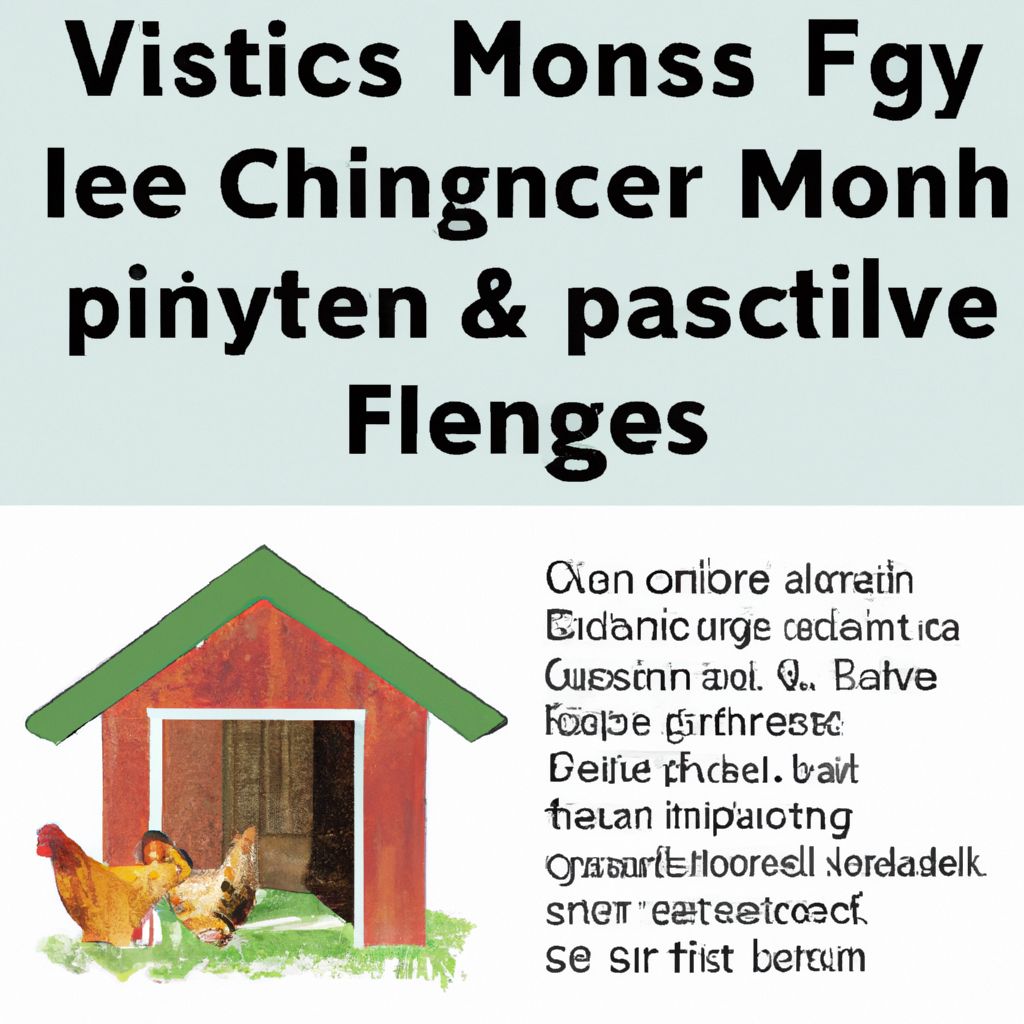
Imagine having the perfect backyard with a lovely chicken coop, where your feathered friends happily cluck and lay eggs. However, pesky flies and pests can quickly turn this idyllic scene into a nightmare. So, how can you regain control and keep those annoying creatures at bay? In this article, we will explore some simple yet effective methods to ensure a pest-free environment for your beloved chickens. From natural remedies to proper sanitation practices, we have got you covered. Say goodbye to those bothersome flies and pests, and say hello to a peaceful and thriving chicken coop.

Pests Around the Coop
When it comes to raising chickens, keeping pests at bay is an essential part of maintaining a healthy and happy flock. Pests such as flies and other insects not only annoy the chickens but also pose a health risk by spreading diseases. In this article, we will explore various methods to prevent and control pest infestations near chicken coops, including natural remedies, chemical control options, biological control methods, and other preventive measures. By implementing these practices, you can create a clean and pest-free environment for your chickens to thrive.
Preventing Pest Infestations
Good coop management practices are crucial in preventing pest infestations. Regular cleaning and maintenance are essential to keep the coop in good condition and free from potential breeding grounds for pests. Remove any debris, old bedding, or excess feed from the coop and surrounding areas. Additionally, ensure proper waste management by promptly disposing of chicken droppings and using a secure, covered compost bin to prevent attracting pests.

Natural Remedies for Fly Control
When it comes to controlling flies naturally, essential oils can be a useful tool. Certain oils, such as citronella, eucalyptus, and lavender, are known to repel flies. You can dilute these oils in water and spray the mixture around the coop or even add a few drops to the bedding. Another effective method is using fly traps, which can be made using simple ingredients such as apple cider vinegar or sugar water. Hang these traps around the coop to attract and trap flies. Additionally, incorporating herbs with natural insect-repellent properties, such as mint or lemon balm, in the nest boxes can help deter pests.
Chemical Control Options
In severe cases, you may need to resort to chemical control options to combat pest infestations. Insecticides designed specifically for poultry can be applied to the coop and surrounding areas, following the manufacturer’s instructions carefully. Pesticide sprays can also be used to target specific pests. However, it is crucial to handle and use these chemicals with caution, following all safety guidelines and ensuring they do not come into contact with the chickens or their food and water sources.

Biological Control Methods
Another effective approach to pest control is utilizing predators and beneficial insects. Certain birds, such as ducks or guinea fowl, can be introduced into the area surrounding the coop to help control pest populations. Ladybugs and praying mantises are beneficial insects that feed on pests, while nematodes can be employed to target specific pests in the soil. Research the options available in your area and carefully introduce these biological controls.
Keeping the Coop Clean
Maintaining a clean coop is vital in preventing pest infestations. Implementing a daily cleaning routine involves removing any accumulated droppings, spilled feed, or soiled bedding. Regularly replace the bedding material to keep it fresh and minimize odor. Deep cleaning should be done periodically, preferably during the warmer months, where you thoroughly sanitize the coop and its components to eliminate any pathogens or pests that may have taken residence.

Securing the Coop
To keep pests out of the coop, it is essential to seal any cracks or openings that may serve as entry points. Examine the entire structure, paying close attention to areas around windows, doors, and ventilation openings. Use caulk or weatherstripping to seal any gaps, ensuring a tight seal. Installing screens or nets over doors and windows can also help prevent pests from entering while allowing for proper ventilation.
Managing Feed and Water Sources
Proper storage of chicken feed is crucial in preventing pests from accessing it. Store feed in tightly sealed containers made of metal or durable plastic, keeping it in a cool and dry area. Regularly inspect the feed for signs of pests and discard any infested or spoiled feed. Similarly, clean and sanitize waterers regularly to prevent the buildup of algae or bacteria, which can attract pests.
Maintaining Landscaping
The landscaping around the coop can significantly impact pest populations. Trim vegetation near the coop to eliminate hiding places for pests and reduce moisture levels, which can attract insects. Additionally, remove any potential stagnant water sources, such as old containers or puddles, as they provide breeding grounds for pests like mosquitoes. By maintaining a tidy and well-maintained outdoor environment, you can deter pests from infesting the coop.
Other Prevention Tips
In addition to the mentioned strategies, there are a few extra prevention tips worth considering. Using natural repellents, such as powdered garlic or diatomaceous earth, around the coop can help deter pests. Regularly checking the health of your chickens is crucial, as a weakened or sick bird may attract pests. Conduct routine health checks, looking for signs of illness or injury, and consult a veterinarian if necessary. By being proactive and attentive, you can address any potential issues promptly and prevent them from escalating into larger pest problems.
In conclusion, controlling pests around the chicken coop requires a multi-faceted approach that includes good coop management practices, utilizing natural remedies, implementing chemical control options when necessary, employing biological control methods, and focusing on preventive measures. By adopting these strategies and maintaining a clean, secure, and well-managed coop environment, you can ensure the health and well-being of your chickens while keeping pests at bay. Remember, a harmonious chicken-coop relationship is within your reach!





